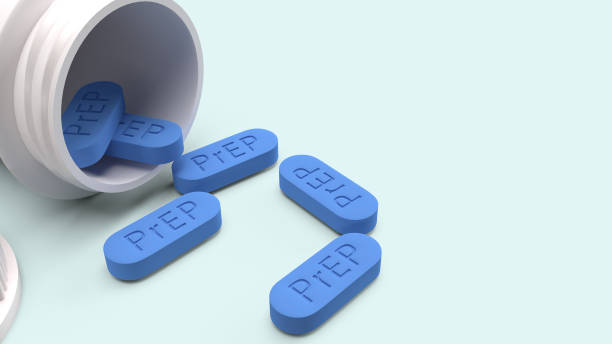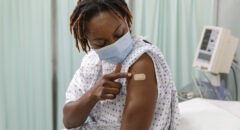
There’s a stigma around HIV, whether we like it or not.
From concerns about sexual promiscuity to beliefs that only drug addicts are HIV-positive, the misinformation around this disease continues to swirl. And it’s making things worse. According to the Centers for Disease Control and Prevention (CDC), only a third of Americans are getting much-needed treatment for the infection.
Called pre-exposure prophylaxis (PrEP), this medication can actually help prevent HIV infection following a sexual encounter or drug use. In fact, it’s 99 percent effective.
But how many brothas and sistas even know this exists?
In the Black community, the use of PrEP is, frankly, dreadful. Of the many Black folks who could benefit from the drug, only eight percent were prescribed it in 2019; compare this to white people, of which 94 percent who need the medicine are using it.
What’s causing this massive disparity?
RELATED: Do You Know Your HIV/AIDS Status?
Why Black Americans Are Missing Out
Let’s face it: people don’t wanna talk about HIV and AIDS. To many people, these conditions sound like a death sentence. Although they are certainly not, lack of education and awareness continues to perpetuate these beliefs.
Oftentimes, you think you’ve got it on lock. After all, you don’t engage in risky behaviors and you don’t use dirty needles. Heck, even if you do do the above, you think you’re safe. You pride yourself on being fortunate, strong, or smart enough not to be one of the unlucky ones.
But not so fast. Did you know that Black Americans account for 40 percent of new HIV diagnoses in the U.S., despite only making up 14 percent of the total population? Here’s a whopper for you… Did you know that 91 percent of new HIV infections in Black women stemmed from heterosexual activity?
You heard that right. Contrary to common belief, HIV/AIDS is not strictly a homosexual disease or drug addict disease. It affects people from all walks of life, from all backgrounds, sometimes when they least expect it.
Acting Proactively
First, let’s talk about this preventatively. You’ve gotta know your risk factors, and you’ve gotta be real with yourself. While protection like condoms can be highly effective, they are not 100 percent. If you’re having fun as a single ready to mingle, don’t go overboard. Be smart, be honest, and be transparent about your sexual history – and get your partner to do the same!
Secondly, drug use. Yes, syringes and needles are often the main culprits, but so are the equipment used for cooking and heating the drug – -cookers. Is your partner using drugs? Has he or she used drugs in the past? Has he or she been sexually active with people who may have used drugs?
If you don’t know your risk level, PrEP may be right for you. Ask yourself the following:
- Are you having unprotected sex?
- Does your partner have HIV?
- Have you been with multiple partners?
- Have they been tested for HIV?
- Have they been tested for an STD in the last 6 months?
Sometimes, it’s just a matter of being vigilant. Many Black Americans may not be aware of these risk factors or may not consider them all that serious. According to the CDC, 87 percent of Black Americans with HIV know they have it. That means that 13 out of every 100 have no clue.
Lack of testing, proper health education, and medical options are all contributing factors to this issue.
RELATED: The HIV Test: Basic Facts You Need To Know
So What Can Be Done?
Beyond being personally responsible, there is also the issue of access and coverage. Most PrEP medications, clinical visits, and laboratory testing cost more than $5,000 annually. Some insurance providers may choose not to cover, and some employers don’t want to pay either because they believe that PrEP encourages people to engage in risky behaviors.
Budget cuts to HIV prevention and care also threaten the use of PrEP, in the Black community especially. Advertisers and marketers need to increase targeting toward Black Americans. Schools, clinics, and community centers should offer testing, seminars, and even workshops around the topic of HIV/AIDS.
While this is happening – thanks in part to the CDC working with community groups and government departments – it’s not enough. A lack of doctors willing to prescribe to Black patients may also be a complicating factor.
At the end of the day, the prevention and treatment of HIV/AIDS among Black Americans requires a joint effort. At both the local, state, and federal levels, new programs are necessary. But first, it needs to start at the grassroots. Simply talking about the issue and raising concerns is a good way to break down barriers.
Step by step, with articles like this and calls for action like this, Black Americans can get the fair and equal access to PrEP they need and deserve.








